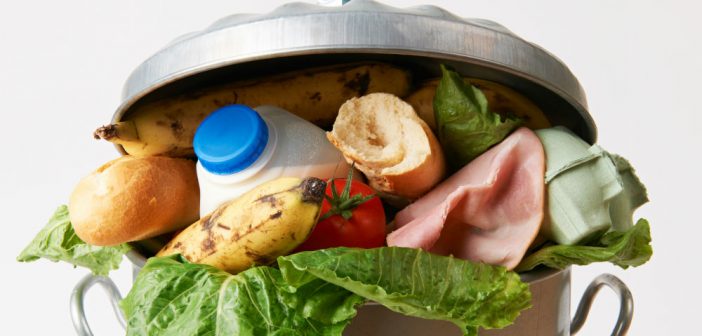Food waste in the United States is a growing problem. Annually, Americans throw away around 35 million tons of food waste and 95% of that ends up in landfills or combustion facilities. It doesn’t have to be this way. If we all chip in a little bit in our daily lives, we could significantly cut down on the amount of food wasted in the US each year.
When you hear 35 million tons of food is wasted, it can seem impossible to do anything to help. You may think, “What difference can I make? The truth is, a lot. Every single person needs to chip in to help solve the problem. Start small and it will cause a domino effect to real change.
Here are 5 practical ways to reduce food waste that you can start doing today.
1. Plan ahead.
This might not seem easy, but in the long run having a meal plan is a great way to approach food shopping. Before you ever set foot in a store, plan out exactly what you need to buy. Bring the list with you to the store and stick to it. Avoid impulse buys or buying bulk items you might not use all of. A little planning goes a long way in reducing food waste. Planning is a great way to save money on groceries too, because wasting food is wasting money.
2. Practice FIFO.
When you bring home your groceries from the store, move anything that’s old in the fridge or pantry to the front. Practicing “first in, first out” will help you avoid items expiring in the back of your fridge. Another good tip is to check which items you already have before going to the store. If you need to use something soon, plan to buy items for a recipe that uses the older item.
3. Keep a throw away log.
You might not realize how much food you are actually throwing away. Start writing down everything you throw out in a month. Always tossing moldy bread? Try freezing half the loaf. Are salad greens constantly getting slimy? Consider buying less at one time or opting for some alternative storage options. Knowledge is power when it comes to reducing food waste.
4. Learn to love leftovers.
Leftovers aren’t just food from the night before, they can be lunch gold. Wouldn’t you rather have a yummy portion of lasagna from last night for lunch rather than greasy fast food? Just like other food waste reducing habits, eating all your leftovers will help save you money too.
5. Donate what you don’t use.
Even with careful planning, you can sometimes buy too much at the store. On a regular basis, do an inventory of what you have in your cupboards. Be honest with yourself about whether you will actually eat something before it expires. If you have some canned beans, pasta boxes, or other non-perishables that you probably won’t eat, donate them to an organization that will use them. Find a local food bank or food pantry that will get these items to people who need them. This will help you reduce food waste and you will feel good knowing that you are helping out others.
6. Share entrees when eating out.
American restaurants are notorious large portion sizes. If you’re constantly asking for a to-go box at the end of your meal and never eating the leftovers, consider splitting an entree with a dining mate. You’ll save money, calories, and reduce food waste all at once.
7. Get proper food storage.
Most food wasted is a result of it going bad before it can be consumed. Make sure your food storage is functioning properly. Regularly check your fridge for proper seals and proper functionality. Invest in some air-tight containers for other items or a vacuum sealer to help extend shelf life. A little investment upfront can save you a lot of money and waste in the long run.
8. Schedule a “use it up” meal.
On a weekly or monthly basis have a “use it up” meal. Go through items that you already have in your kitchen and create a meal out of it (basically playing Chopped in the kitchen.) It can be really fun to get creative and see what you can come up with. Invite over some friends or family and encourage them to bring along their own “use it up” dish for a fun, food-waste-free potluck.
9. Be flexible on expiration dates.
Expiration dates are only a guideline. Food companies can’t completely predict when a food will spoil and the dates aren’t federally regulated. If you are still within a few days of the printed expiration date, use your judgment in whether you can still consume the product. If it looks, tastes, and smells fine, it’s probably fine to consume. You can save a lot of food waste being flexible about expiration dates.
10. Start composting.
Composting is a really easy way to avoid food scraps from ending up in a landfill or worse. You don’t have to have a big backyard or live in the country you can still start composting (you can even do it under your sink.) If you don’t plan to use compost for gardening, you can find places that will accept donated compost.









